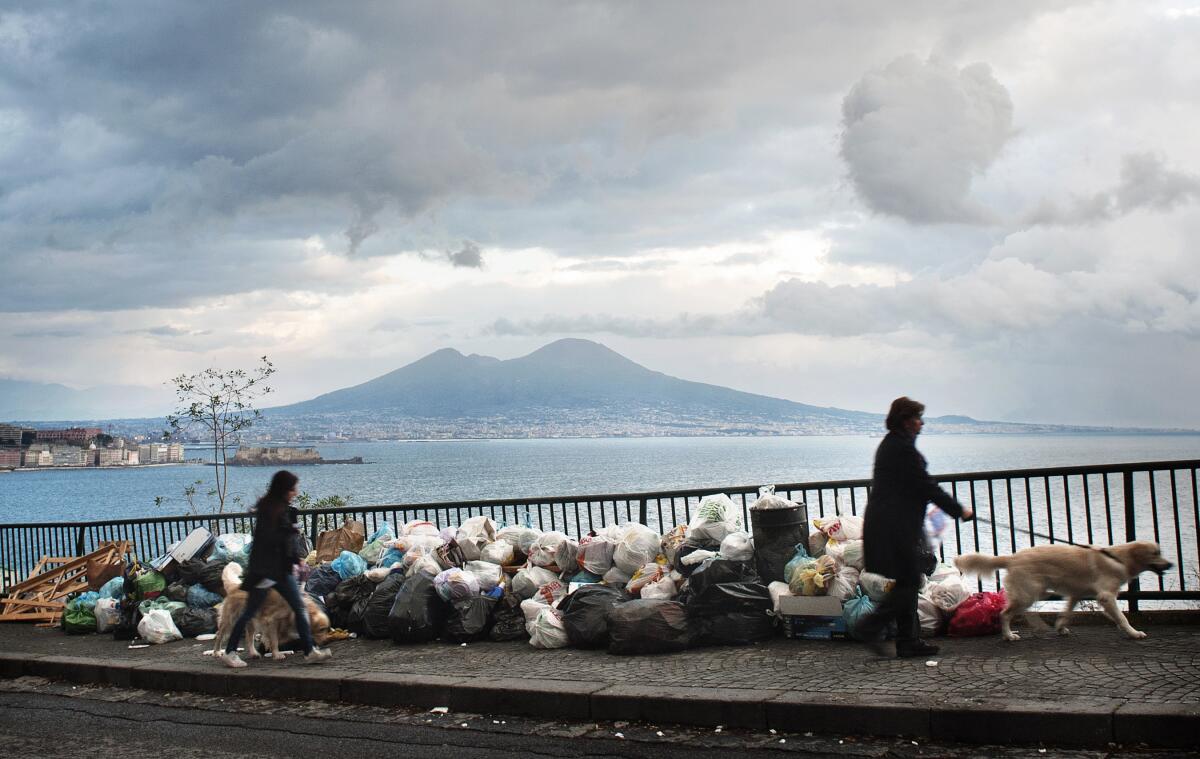European court says Italy violated rights of residents near Naples over garbage crisis

- Share via
ROME — Italy violated the human rights of residents living in and around Naples by failing to manage a 15-year garbage and pollution crisis that contributed to higher mortality rates from cancer in the area, the European Court of Human Rights ruled.
The preliminary verdict announced Thursday from the Strasbourg-based court is the second major one in recent years to find that Italy’s failure to collect, treat and dispose of tons of waste in the Campania region adversely affected residents’ personal well-being.
Residents of the area have long complained about adverse health effects from the dumping, which has poisoned the underground wells irrigating the farmland that provides vegetables for much of Italy’s center and south. The area is known as the “land of fires,” since the accumulated waste is commonly burned, spewing toxic fumes for miles.
Stinking mounds of garbage piled up Friday on the streets of Naples, as officials blamed organized crime and red tape for the situation.
Authorities say at least some of the contamination is due to the local Camorra mob’s multibillion-dollar racket in disposing of hazardous waste. The Strasbourg court didn’t identify who was behind the solid waste crisis under study in Caserta and San Nicola la Strada and the pollution at a landfill site.
The court found that Italy violated residents’ rights during a state of emergency over the garbage crisis from 1994 to 2009 by failing to take measures to protect their private and family rights.
As piles of uncollected refuse reach 6 feet high in some southern towns, anger against authorities is mounting too.
The 19 claimants had presented the court with government-commissioned studies on the health impacts of the resulting pollution over the years. The studies found that the risk of mortality associated with a host of cancers — tumors of the stomach, liver, kidney, and lung, among others — as well as heart malformations were higher in the provinces of Naples and Caserta than the rest of the region, the ECHR judgment reported.
The verdict, known as a chamber judgment, is not yet final. Both sides have three months to ask for the case to be heard by the court’s grand chamber. Once a final ruling is reached, Italy would have to submit an action plan outlining how it intends to implement the findings.
As a signatory to the European Convention on Human Rights, Italy is legally obliged to implement the court’s rulings.
More to Read
Sign up for Essential California
The most important California stories and recommendations in your inbox every morning.
You may occasionally receive promotional content from the Los Angeles Times.












